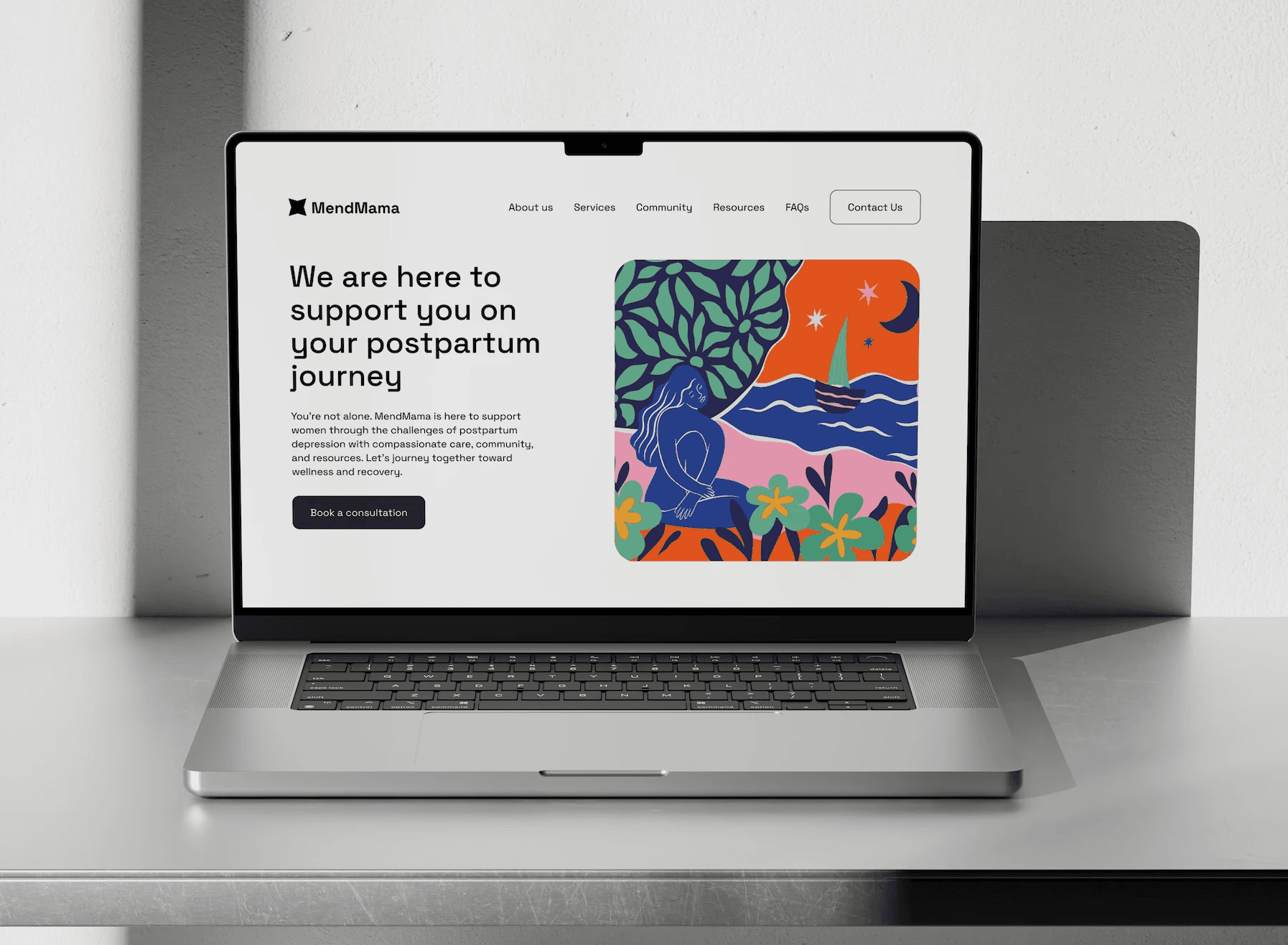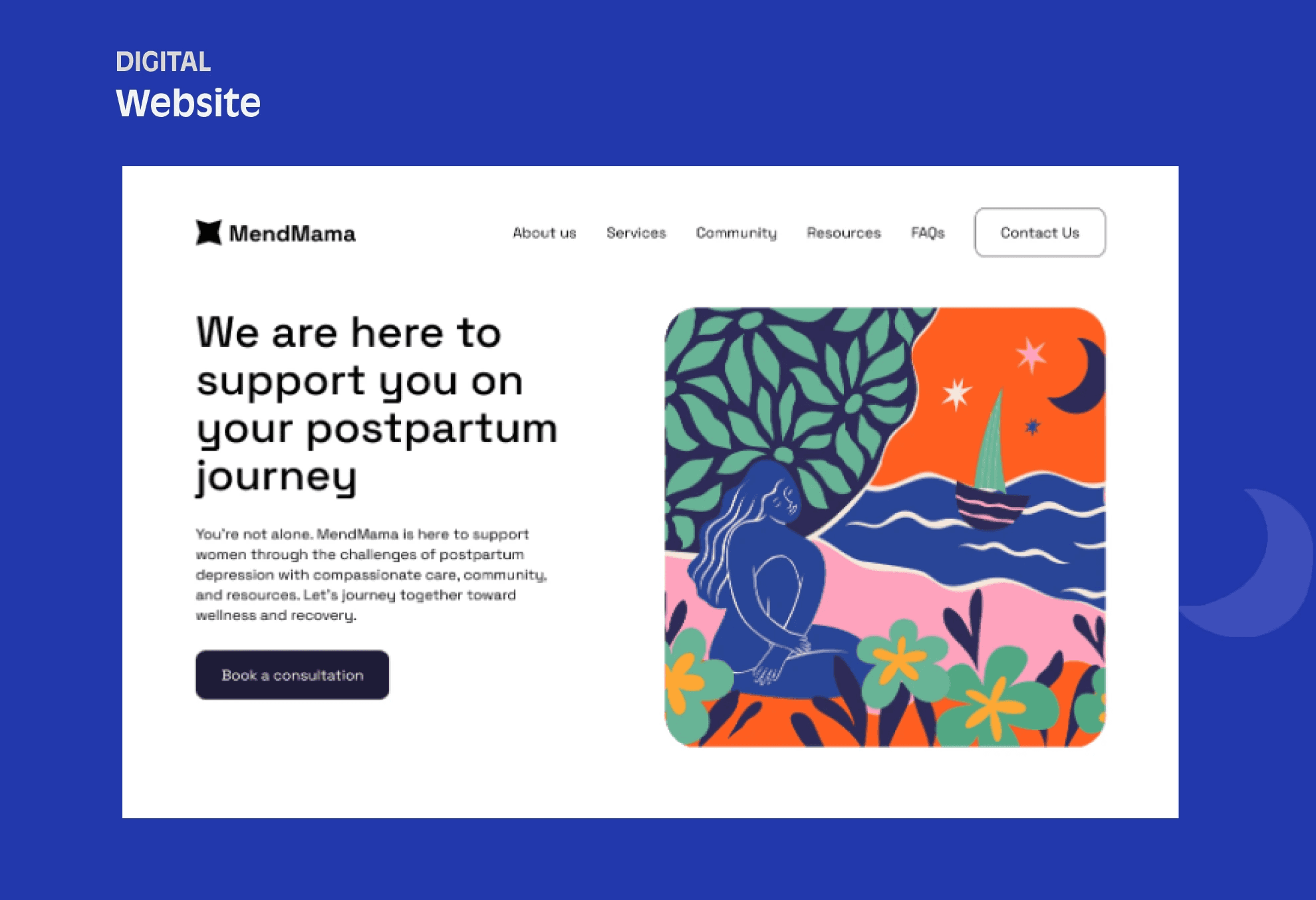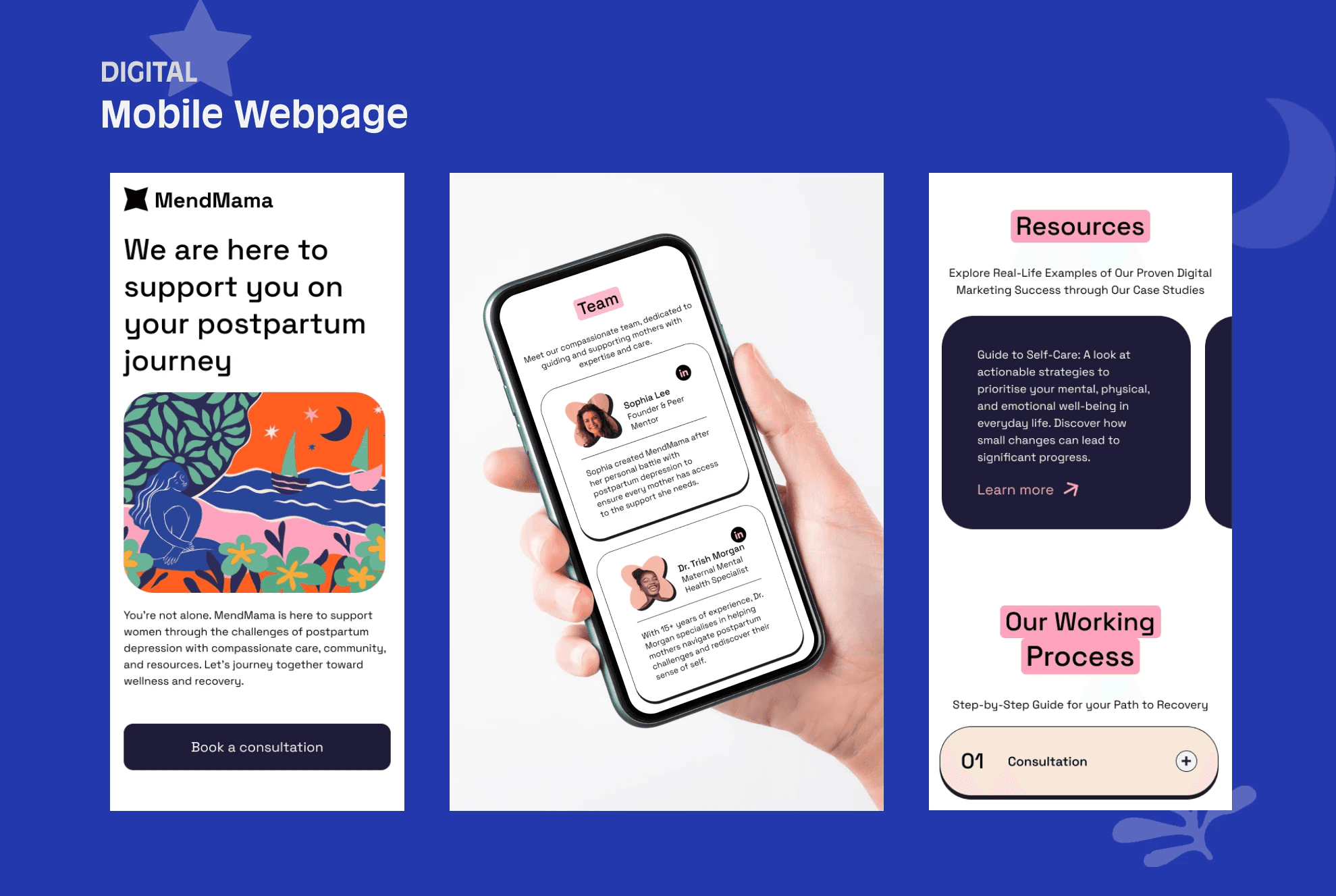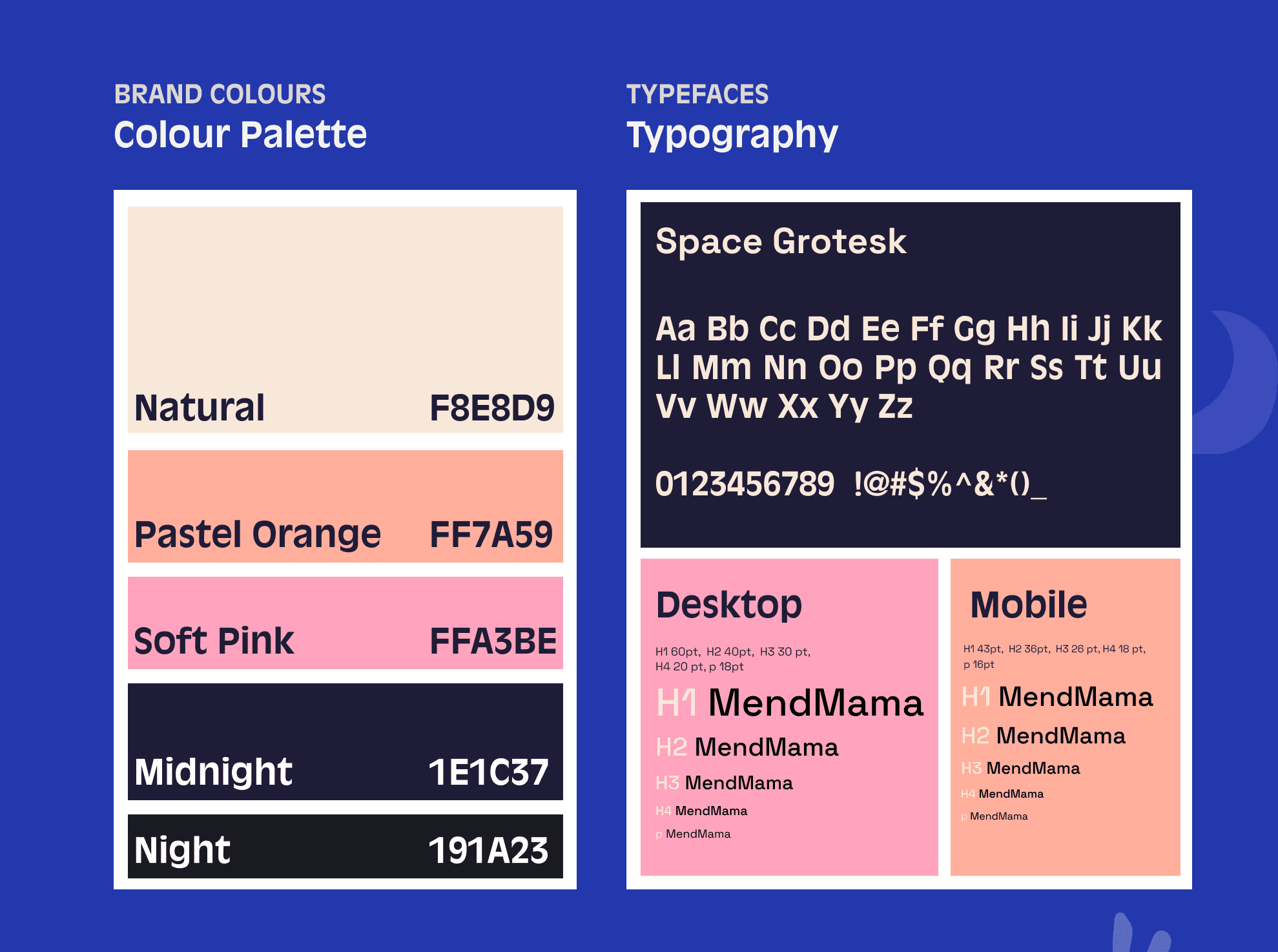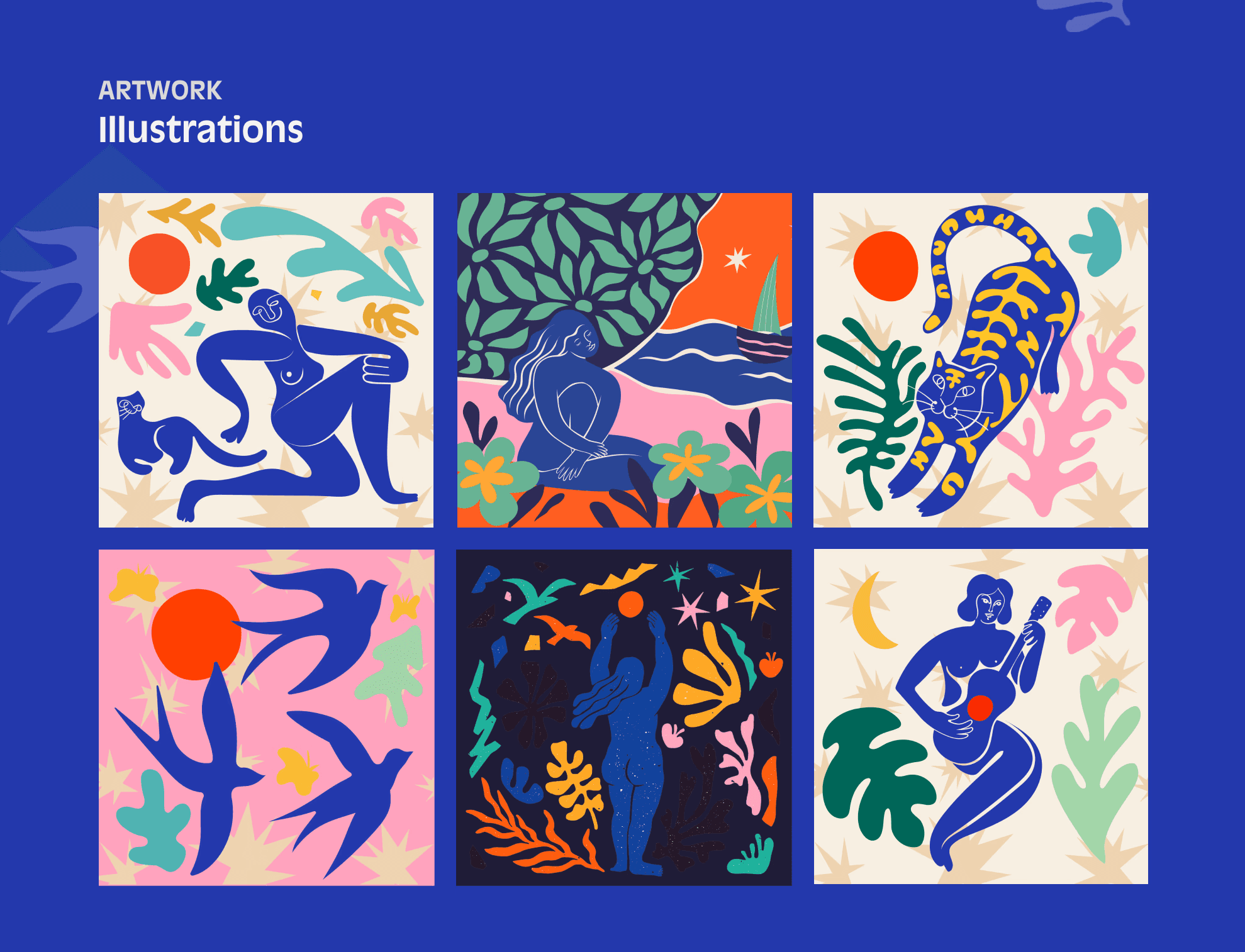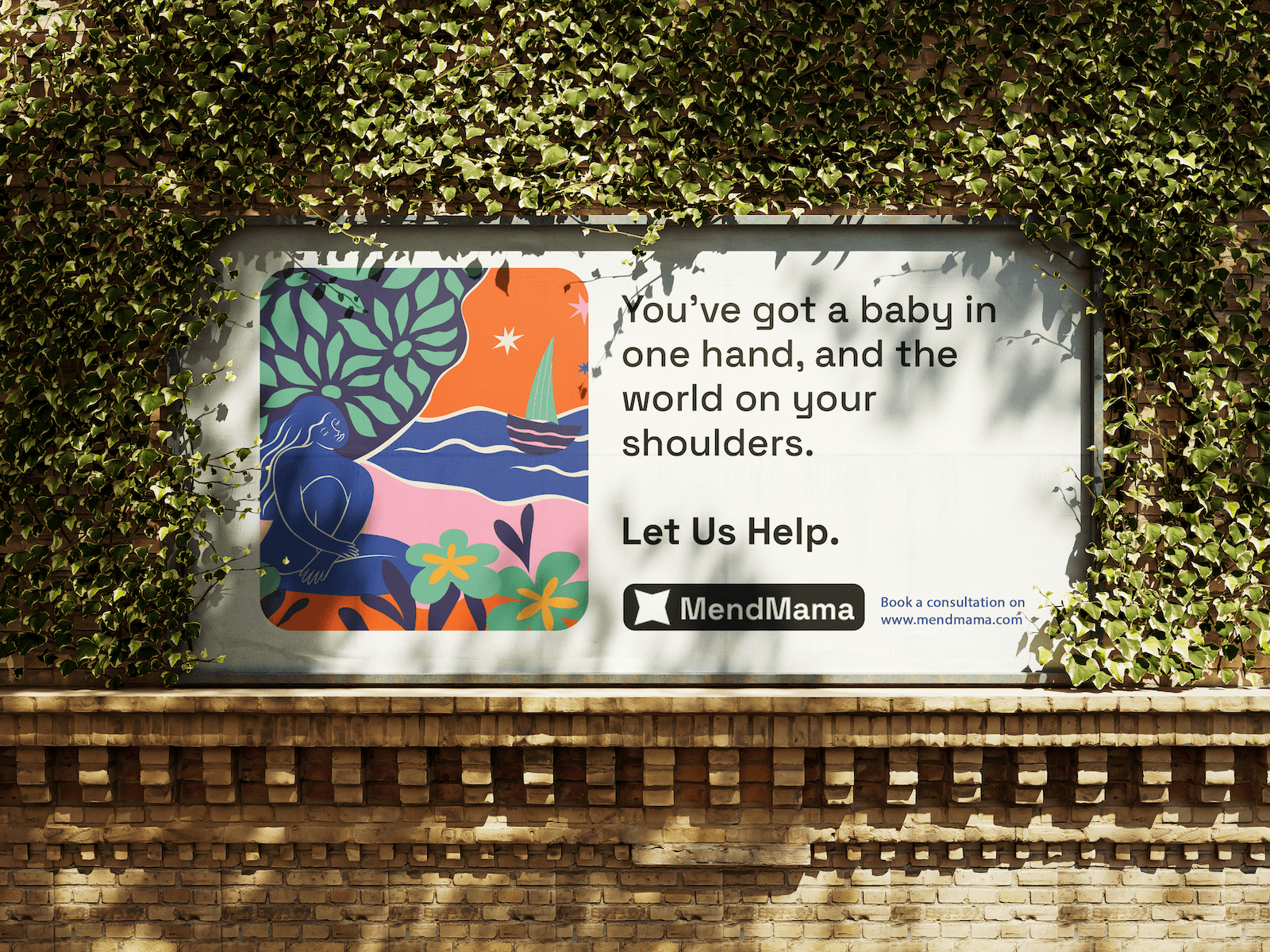Why
TU Delft, ranked among the top global institutions for design, offers a unique "Design Approach" that emphasises creating meaningful products. I was eager to learn from their expertise to refine my skills, especially in product & service design.
What
I learned to understand meaningful design, generate and evaluate ideas, and improve decision-making. I applied these principles to create MendMama—a digital platform supporting women in their postpartum journey.
How
By focusing on human-centered design and TU Delft's structured methodologies, I developed a product that addresses a niche but crucial user experience area.
Overview
The Delft Design Approach offers a structured yet flexible framework to tackle complex design challenges, rooted in user needs, contextual understanding, and iterative exploration. The course goes beyond aesthetics, focusing on creating products that are meaningful, innovative, and contextually relevant.
What sets this approach apart is its emphasis on the process of designing—an iterative journey from problem framing to concept realisation—rather than merely the final product. Designers are encouraged to explore the "Why," "How," and "What" of a design challenge, unraveling the deeper motivations, behaviours, and contextual factors that shape user experiences.
Through this program, I learned not only how to design, but why design matters: to create meaningful value in people’s lives by addressing their needs and aspirations in ways that feel natural, empowering, and relevant to their context.
What I Learned: How I Now Think as a Designer
This course reshaped my thinking by emphasising the importance of:
Designing for Meaning
Rather than focusing solely on functionality or aesthetics, I now approach design as a means to enhance people’s experiences, addressing their physical, emotional, and social contexts. I learned to explore the implicit motivations and values underlying user behaviour, ensuring my solutions resonate deeply and purposefully.Balancing Logic and Intuition
TU Delft’s framework provided me with tools to navigate ambiguity while maintaining creative freedom. I learned to alternate between structured methodologies (e.g., deconstruction, context mapping) and moments of intuitive exploration, allowing for innovative yet grounded solutions.Reflection as a Driver of Progress
Progress in design, as emphasised in the course, is fuelled by constant reflection—on both the problem space and potential solutions. This reflective mindset ensures adaptability and rigour, traits I’ve carried into my project work.
Process
For my project, MendMama, I applied principles from the course to address a critical need: supporting postpartum women in navigating recovery and new responsibilities. The process began with understanding their context through research techniques such as:
Deconstruction: Analyzing the postpartum journey to identify key pain points and areas for meaningful intervention.
Context Mapping: Exploring the physical, emotional, and social factors influencing women’s postpartum experiences.
Define
The design challenge was framed as:
"How might we empower postpartum women to balance self-care and caregiving, while managing the emotional and logistical complexities of recovery?"
This stage involved synthesizing insights into clear objectives, including improving time management, emotional well-being, and access to tailored support resources.
Ideate
Using ideation techniques like brainstorming and divergent thinking, I explored a range of solutions. Ideas ranged from digital tools for health tracking to peer-support platforms, each evaluated against criteria of feasibility, relevance, and potential impact.
Generate Ideas
The chosen direction for MendMama centered on three professional objectives:
Facilitating Physical Recovery: A customizable recovery tracker for postpartum health milestones.
Providing Emotional Support: A daily check-in tool and curated resources to address mental well-being.
Streamlining Logistics: A task management system tailored to the unpredictable demands of postpartum life.
Develop & Evaluate
Using iterative development, I created low-fidelity prototypes and tested them with potential users. This revealed critical insights, such as the need for simplicity in interface design and the importance of prioritizing actionable features over purely informational ones. Feedback from these evaluations directly shaped the final concept.
Why This Project Matters
The postpartum period is often overlooked in design, yet it profoundly impacts women's health, well-being, and sense of identity. This project matters because it addresses an underserved audience with empathy and practicality.
MendMama isn’t just a product—it’s a tool to empower women during one of the most transformative phases of their lives. By fostering self-care and reducing overwhelm, this platform has the potential to improve not just individual experiences but also the broader support network surrounding postpartum recovery.
What’s Next
Building on the Delft Design Approach, I plan to refine MendMama by:
Mapping detailed user journeys to uncover additional opportunities for support.
Expanding testing to include diverse demographics and use cases.
Exploring service design principles to integrate MendMama with healthcare systems and community networks.
